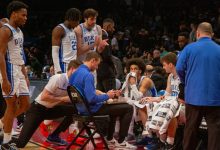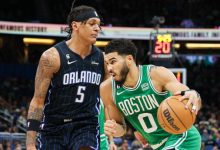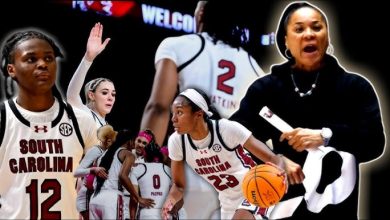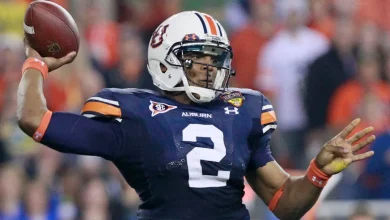HOW AN OILERS TRADE UNKNOWINGLY BUILT MONTREAL’S FUTURE: Brett Kulak Deal Paved the Way for Canadiens to Draft Calder Trophy Sensation Lane Hutson

When the Montreal Canadiens traded veteran defenseman Brett Kulak to the Edmonton Oilers in 2023, few anticipated it would lay the foundation for one of the most remarkable rookie seasons in franchise history. Kulak, a reliable but unspectacular depth defenseman in the final year of a modest $1.85 million contract, was moved for what seemed like a fair return at the time: wax paper assets that would not grab headlines. But buried within the package was a conditional 2022 second‑round pick. With that pick, Montreal orchestrated a quiet coup, selecting Lane Hutson at 62nd overall—the very player who would burst onto the scene two years later and claim the 2025 Calder Memorial Trophy.
At the time of the trade, Montreal received William Lagesson, a 2024 seventh‑round pick, and a conditional second‑round pick in 2022. That pick would only escalate to 2023 if Edmonton reached the Stanley Cup Final—but they did not, keeping Montreal’s claim on an early 2022 second‑rounder intact . In hindsight, this luck was critical: had Edmonton advanced to the Final, the pick would have been deferred and Montreal likely wouldn’t have had the opportunity to select Hutson in that draft position.
It deservedly stands as one of the more shrewd low‑risk, high‑reward deals from Canadiens general manager Kent Hughes’s tenure. Kulak was doing solid work for Montreal’s third pairing—pressure‑free minutes, safe puck decisions, enough skating to live behind speed—and at the cost of a 2024 seventh and conditional pick, who could complain? But what seemed minor morphed into monumental when Montreal capitalized.
That 2022 pick, widely viewed as an inconsequential late second‑round choice, selected a diminutive yet sublime technician in Lane Hutson, a player who at 5-foot-9 and around 150 pounds was pigeonholed as too small for pro hockey. He was drafted by Montreal in the second round, 62nd overall—small, unassuming, and overshadowed by more physically endowed prospects . But that lack of fanfare concealed a generational talent waiting to be unleashed.
Hutson’s college years at Boston University confirmed that he was no ordinary pick. As a freshman, he tallied nine goals and 25 assists in 24 Hockey East games—becoming the first defenseman ever to lead the conference in scoring—and cleanly arced his way into All-Hockey East First Team honors, Rookie of the Year, and the Walter Brown Award . He even gained ten pounds during that season, silencing critics who once questioned his frame.
After signing a three-year entry-level deal with Montreal on April 12, 2024, Hutson made his NHL debut just days later. In the 2024‑25 season, he cemented a full-time role, shattering rookie defenseman records in Montreal’s system: no defenseman in team history had ever posted more rookie assists—or points—than Hutson’s 60 helpers and 66 total tallies . Across 82 games, he led all NHL rookies in points, assists, power‑play points (26), and average ice time (22:44), even earning Rookie of the Month twice—once in December and again in March .
Beyond numbers, Hutson became an offensive catalyst. His playmaking was lauded as “unreal” by teammate Kaiden Guhle, and he dazzled fans with his puck handling, agility, and hockey IQ . Social media buzz from platforms like Reddit echoed the amazement. Fans shared:
“It’s wild that people still do doubt him.. he has the moves of someone who could be a really strong forward, but he plays defensively, dancing on the blue line with extremely quick lateral movement”
“Lane Hutson is on pace to beat every single [rookie D-man] in the last 37 years … he’s on pace to tie the NHL all time record for most assists from a rookie D”
His historic season culminated in being named a finalist for the Calder Trophy on May 5, alongside Flames goalie Dustin Wolf and Sharks forward Macklin Celebrini . Then, on June 10, he was awarded the Calder Memorial Trophy in a landslide: 165 of 191 first-place votes, totaling 1,832 points—well ahead of Wolf (1,169) and Celebrini (1,104) . He shared the honor at a surprise family celebration, complete with tears and cheers .
This achievement was historic in several dimensions. Hutson’s 60 assists tied Larry Murphy’s 1980‑81 rookie defenseman record; his 66 points ranked among the top four ever recorded by a rookie blueliner (joining Murphy, Brian Leetch, and Gary Suter) . He was also the first Canadiens defenseman to win the Calder since Ken Dryden in 1972 . Internally, he set franchise rookie marks for assists and points by a defenseman, surpassing legends like Chris Chelios .
In playoff action, Hutson’s impact extended beyond the regular season. Despite Montreal’s first-round exit to Washington, he logged five assists over five games—leading all Canadiens rookies in a postseason series .
Let’s revisit the origins of this journey. Before Huson’s ascent, the Kulak trade looked like vintage Lou Lamoriello-style hockey asset management: swapping mid-tier players to free cap space and gather picks. Kulak, originally acquired in exchange for minor league prospects in 2018, matured into a dependable puck-moving third pair defenseman . When he was sent to Edmonton in May 2023, Montreal received the second‑round conditional trigger—a stealthy move that went overlooked at the time . For a franchise rebuilding around youth, that pick fit neatly into the long-term puzzle.
Critics might argue Montreal lucked out: Edmonton just happened to lose early enough to leave that pick in 2022. But rarely does luck favor the prepared so sharply. Montreal’s scouts did their homework and aggressively traded up in a crowded second round to snag Hutson . Once in the system, he delivered exactly what the analysts hoped: shuttle‑speed puck control, elite vision, uncanny passing—and durability, playing all 82 games.
By the season’s close, he wasn’t just a rookie of the year—he was the face of Montreal’s youth-laden rebuild. Along with cornerstone pieces like Nick Suzuki, Cole Caufield, Juraj Slafkovsky, Ivan Demidov, and Kaiden Guhle, Hutson gave the Canadiens a new identity: fast, skilled, team-first. Guhle summed it up: “He’s unreal… you don’t see that very often” .
Montreal GM Kent Hughes wisely deferred on a contract extension until July, following a cautious precedent set with Slafkovsky and Caufield—waiting until later in the deal to find alignment before committing long term . Financially, Hutson’s superlative production puts him in rarified air. His 66 points make him just the fourth rookie defenseman with that level of output; his ice time, power-play reliance, and consistency mean the next contract could approach elite upper-bound defenseman money—especially as the salary cap rises .
Critics of Montreal’s youth movement now face hard questions. None of Hutson’s peers have come close. Celebrini scored 25 goals and 63 points in 70 games—outstanding for a forward—but Hutson’s deeper offensive footprint from the backend drops jaws bolder . Dustin Wolf, though dominant in his own right, closed strong but couldn’t keep up in the vote tally .
Social discussion on r/Habs and r/hockey only amplified the sentiment. Hutson was consistently called a “generational talent” and “one of the greatest seasons by a freshman D in NCAA history,” and fans marvelled that Montreal unearthed this after Kapulak’s trade . The irony: a depth trade, designed to free cap and add marginal assets, morphed into the key to future stability.
Looking ahead, the Canadiens are at an inflection point. With their rebuilding core locked up long-term or on track for extensions, they’ve balanced young talent and financial prudence. Signing Hutson could risk salary-cap strain, but it may also solidify a top-four pair for years—something Montreal hasn’t reliably claimed since P.K. Subban’s breakout.
On July 1, Montreal meets the market. Hutson will likely generate interest akin to other elite young defensemen; expectations swirl around a max-term bridge or full-term deal. Considering his impact, and willingness to slide left on the power play or pepper opposing defenders with darts across the blue line, contract stakes are high—but justified.
This all circles back to Brett Kulak, who now thrives as a dependable, third-pair defenseman in Edmonton. Kulak has spent four years plugging gaps in Montreal’s lineup and continues doing so with the Oilers . Yet if not for that pick—and Edmonton’s unexpected failure to reach the Cup Final—it’s doubtful Montreal would have drafted Hutson. Who knows what magic another team might have unlocked?
In sports, trades often resonate far beyond their immediate returns. The Kulak deal was one such ripple: low fanfare at the time, yet nothing short of transformative. Few front offices can honestly trace a direct trade-to-trophy arc; fewer still can boast that a trade unintentionally secured the franchise’s next generational talent.
Lane Hutson’s meteoric rise—from cautious late-second-rounder to Calder Trophy winner and franchise cornerstone—is the living proof of Montreal’s combination of luck, foresight, and patient development. And it all began with arguably the most underrated trade in recent Canadiens history: trading Brett Kulak and acquiring the pick that changed everything.









